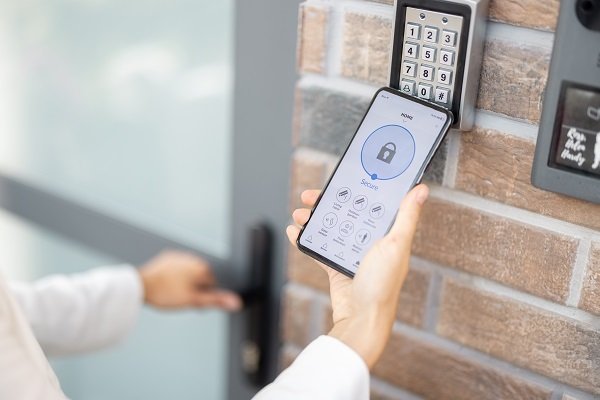Role of Music Therapy for Dementia in Memory Care

 In the intricate tapestry of memory care, where the challenges of dementia cast shadows on familiar landscapes, the melodic strains of Music Therapy emerge as a beacon of hope and healing. The role of Music Therapy in dementia care transcends the boundaries of conventional interventions, offering a unique and powerful avenue to navigate the complex terrain of memory-related challenges.
In the intricate tapestry of memory care, where the challenges of dementia cast shadows on familiar landscapes, the melodic strains of Music Therapy emerge as a beacon of hope and healing. The role of Music Therapy in dementia care transcends the boundaries of conventional interventions, offering a unique and powerful avenue to navigate the complex terrain of memory-related challenges.-
What is Music Therapy in Memory Care?
Music therapy in memory care is a specialized form of therapeutic intervention that utilizes the elements of music to address the unique needs of individuals facing memory-related challenges, particularly those with conditions like dementia and Alzheimer’s disease. This therapeutic approach is designed to enhance cognitive, emotional, and social well-being by incorporating various musical activities and techniques. Music therapists, who are trained professionals, use music to achieve specific therapeutic goals tailored to each individual’s needs.
What Are the Key Components of Music Therapy for Dementia?
Emotional Resonance
One of the most profound aspects of Music Therapy lies in its ability to tap into emotions. For individuals with dementia, whose verbal communication may be compromised, music becomes a potent channel for expressing and experiencing emotions. Familiar melodies can evoke a range of feelings, from joy and happiness to nostalgia and tranquility. This emotional resonance not only provides a means of self-expression but also creates a bridge for caregivers and loved ones to connect with the individual on a deep, emotional level.
Cognitive Stimulation and Memory Recall
The cognitive benefits of Music Therapy are substantial. Engaging with music stimulates various cognitive functions, including memory recall. Listening to tunes from the past can trigger memories thought to be lost, transporting individuals back to significant moments in their lives. This stimulation of memory not only enriches the individual’s personal narrative but also contributes to a sense of continuity and identity, counteracting the disorienting effects of dementia.
Social Harmony
In the social landscape of memory care, where maintaining connections can be challenging, Music Therapy serves as a facilitator of social harmony. Group music sessions create a shared experience, fostering a sense of community among participants. The joy of creating music together transcends cognitive limitations, promoting a sense of belonging and reducing feelings of isolation. Caregivers, too, find new avenues for connection through shared musical moments.
Alternative Communication
Music serves as a universal language, especially valuable when verbal communication becomes challenging. Singing, rhythmic movements, and playing instruments offer alternative avenues for expression, enabling individuals to communicate and connect with caregivers and peers.
Mood Regulation and Relaxation
The therapeutic influence of music on mood is a cornerstone of Music Therapy. In the dynamic emotional landscape of dementia, where individuals may experience heightened anxiety or periods of agitation, music provides a soothing and regulating influence. Carefully selected tunes have the power to uplift spirits, creating moments of joy, or induce a sense of calmness and relaxation.
Reduction of Anxiety
Music’s calming and soothing qualities make it an effective tool in reducing anxiety and agitation, common challenges faced by individuals with dementia. The therapeutic nature of music contributes to a more tranquil and comfortable environment.
Personalized Playlists
Crafting personalized playlists involves selecting familiar songs and meaningful tunes from an individual’s past. These playlists serve as a therapeutic journey through time, connecting individuals with their memories, creating a sense of continuity, and fostering a deeper connection with their personal history.
Enhanced Quality of Life
The holistic benefits of music therapy contribute to an enhanced overall quality of life for individuals with dementia. By addressing emotional, cognitive, and social needs, music therapy becomes an integral part of comprehensive care, promoting well-being on multiple levels.
Collaborative Care
Incorporating music therapy into memory care requires a collaborative approach. Caregivers, healthcare professionals, and trained music therapists work together to assess individual needs and preferences, tailoring interventions to create a personalized and effective music therapy experience for each participant. This collaborative effort ensures that the therapeutic benefits of music are maximized in the context of dementia care.
Identity and Continuity
Through the stimulation of memories and connections to the past, music therapy helps individuals with dementia maintain a sense of identity and continuity. This is crucial in preserving a feeling of self and understanding one’s place in the world despite the challenges presented by cognitive decline.
In conclusion, in the realm of memory care, the impact of Music Therapy on dementia is profound. Beyond its melodic allure, Music Therapy serves as a transformative force, unlocking memories and fostering emotional connections.The individualized playlists, resonating with familiar tunes, serve as therapeutic pathways through personal histories, fostering a sense of ongoing narrative. As an integral component of comprehensive memory care in McKinney,TX music therapy emerges not only as a harmonious intervention but also as a universal language, capable of bridging gaps, stimulating cognition, and nurturing emotional health. It stands as a powerful affirmation of music’s ability to transcend the obstacles posed by dementia, providing solace and forging connections for those navigating this distinctive journey.








